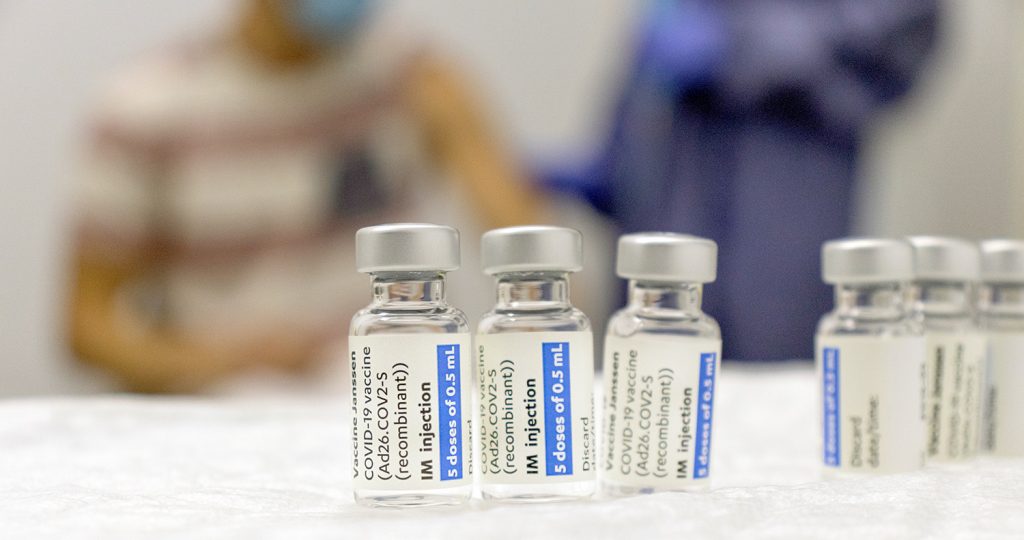Wondering if you should get a COVID-19 booster shot, when you might be eligible or which is the right shot for you? All three vaccines have been approved for single-dose boosters and more and more people are becoming eligible for boosters. As we move into the holiday season, it’s important to know the facts. Find commonly asked booster-related questions and answers below.
Will a booster shot help protect me against COVID variants?
YES! Booster shots help train the body to fully respond to pathogens. They assist the body in creating memory cells that are durable and capable of fighting off pathogens for stretches of time. With previous coronavirus variants, vaccine antibodies from the initial doses may have been good enough to protect against catching the virus for up to six months, but the more contagious delta variant has underscored the need for booster shots so the body can continue fighting against serious illness or hospitalization.
Am I eligible for a booster vaccine?
As an NAU employee or student worker, YES (assuming it has been at least six months since you received your Pfizer or Moderna vaccines, or two months since you received your Johnson & Johnson vaccine)! Currently, individuals 65 years and older and those age 18+ who live in long-term care settings, who have underlying medical conditions (which includes asthma, hypertension, depression, obesity, smoking, etc.) or who live or work in situations putting them at greater risk of expose are eligible to receive a booster.
Examples of workers who may get COVID-19 booster shots:
- First responders (e.g., health care workers, firefighters, police, congregate care staff)
- Education staff (e.g., teachers, support staff, daycare workers)
- Food and agriculture workers
- Manufacturing workers
- Corrections workers
- S. Postal Service workers
- Public transit workers
- Grocery store workers
Check the CDC website for a frequently updated list of who’s eligible.
Based off my previous vaccines, what booster should I get?
Moderna, Johnson & Johnson and Pfizer are all approved by the CDC and the FDA to administer a single booster dose to eligible individuals who previously completed a full COVID-19 vaccine series. New CDC guidance allows individuals to choose which type of vaccine booster they receive, allowing for mixing and matching of vaccines—there is no evidence that receiving two different coronavirus vaccines causes any harm.
Any booster shot, even if it is the same as your first vaccine, will increase the number of antibodies that can fight the coronavirus. But, in some cases, mixing vaccines may offer better protection, experts say. Early data has shown that following up a first dose of Johnson & Johnson with an mRNA vaccine—Moderna or Pfizer—provided significantly higher levels of neutralizing antibodies.
For people who initially received Moderna or Pfizer, experts say it is both safe and effective to stick to the same vaccine.
What are the side effects associated with a booster?
Data collected to this point suggests the side effects brought on by the booster are very similar to the symptoms some people experienced after the initial set—possibly even milder. Pain and soreness around the injection site was the most reported reaction, followed by mild to moderate fatigue or headache, muscle and joint pain, chills, diarrhea, vomiting and fever.
Where can I get a booster?
NAU’s sit-down state vaccination site is located at the NAU Fieldhouse, 1050 S. Knoles Drive, and is open Fridays, Saturdays and Sundays from 2-6 p.m. Moderna, Pfizer and Johnson & Johnson booster vaccines are available for approved populations. Register for a booster shot.
NAU’s Campus Health Services is offering Moderna booster shots. Schedule an appointment through the Campus Health Portal or call (928) 523-2131.
For information about vaccine distribution in Coconino County, visit the county’s vaccine website.
Statewide students, faculty and staff can find a vaccine location near you.



